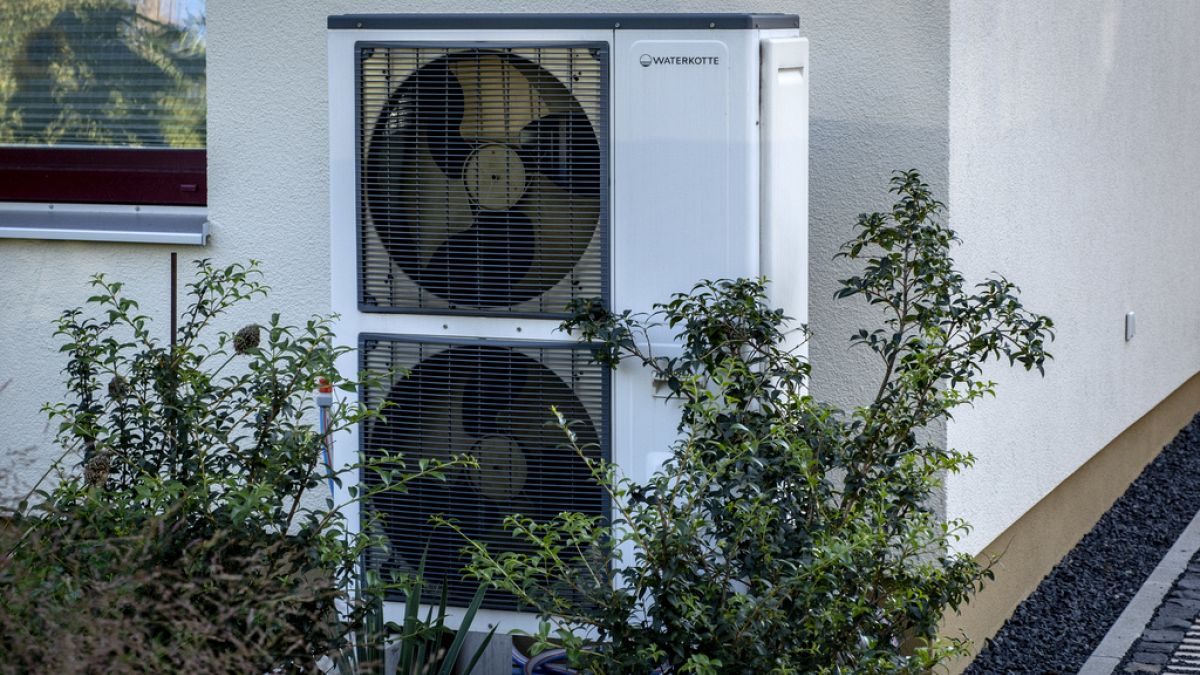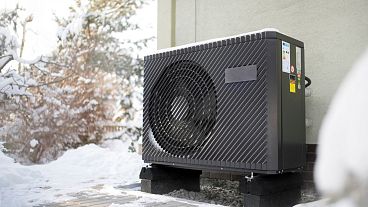Alternatives to toxic chemicals are already available but need to see a greater market uptake.
A new EU law on fluorinated greenhouse gases (F-gases) designed to curb man-made emissions from air conditioners, refrigerators and heat pumps coming into force today (March 11) risks increasing exposure to dangerous ‘forever chemicals’, an NGO has warned.
The International Chemical Secretariat (ChemSec) — an NGO which advocates for the substitution of toxic chemicals with safer alternatives — warned that hydrofluoroolefins (HFOs) remain largely unregulated under the new law.
HFOs are a form of per-and polyfluoroalkyl substance (PFAS), dubbed forever chemicals because they are difficult to remove from the environment.
ChemSec is worried the F-gases law could “inadvertently exacerbate” PFAS pollution crisis as the EU’s plan to slash carbon emissions foresees the deployment of ten million heat pumps by 2027 and a further almost 60 million by 2030. The heating and cooling technologies rely on refrigerant gases such as HFOs.
“The concentration of PFAS in our environment and water sources are already at unsafe levels,” said Jonatan Kleimark, senior chemicals advisor at ChemSec, noting that safer alternatives are currently available in the market.
Ammonia, hydrocarbons and carbon dioxide could safely replace the use of PFAS containing F-gases, ChemSec stated, calling for “legislative action” to speed up the transition to safer alternatives.
“Legislation is the best way to ensure that fluorinated gases are phased out. Switching to natural refrigerants is a win-win situation since it would reduce PFAS pollution and help global decarbonisation efforts at the same time,” added Kleimark.
Alessia Del Vasto, senior policy officer at the European Heat Pump Association (EHPA) said HFOs are not subject to the F-gas regulation but their use — and ban — is currently being assessed by the European Chemicals Agency (ECHA).
“The heat pump sector is committed to switching to non-fluorinated refrigerants wherever technically feasible, now further guided by the clear timeline provided by the F-gas regulation,” Del Vasto told Euronews.
Anastasia Tsougka, programme manager at ECOS - Environmental Coalition on Standards, said all fluorinated gases – including HFOs – will “eventually be banned” in heat pumps in the EU by 2035, pointing to a large number of European companies already producing heat pumps that use natural refrigerants.
"Heat pumps play a vital role in decarbonising heating – and many clean solutions like this already exist. We must be wary of replacing one damaging environmental impact with another, and using fluorinated gases in heat pumps would be just that,” Tsougka told Euronews.
F-gases were originally regulated in the EU in 2014 and a revision by the European Commission was proposed in 2022, however, a compromise was only forged between the European Parliament and the Council under the Spanish Presidency of the EU Council, last October.
Subscribe here to stay informed on the latest EU policy developments with our weekly newsletter, “The Policy Briefing”. Your weekly insight on European rulemaking, policy issues, key events, and data trends.



